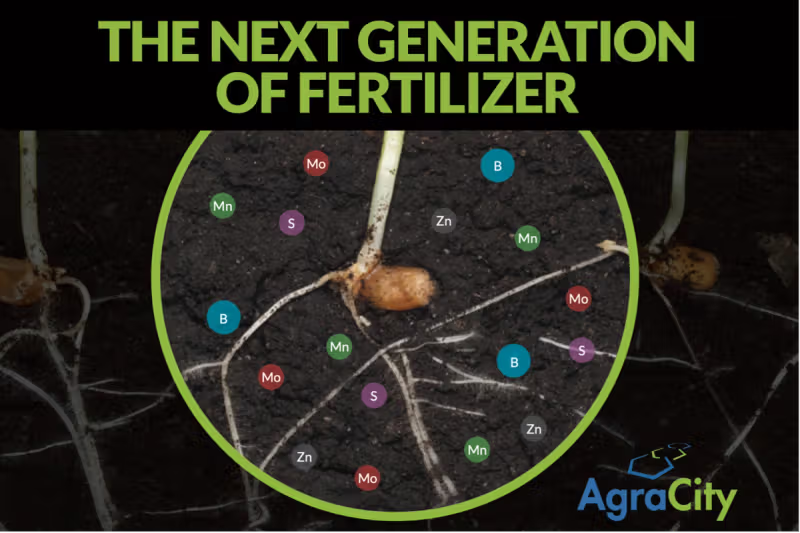
Choosing the Right Fertilizers for Successful Canola Cultivation
2024-11-25
Canola farming in Western Canada presents a unique set of challenges and opportunities. To ensure a successful harvest and maximize yields, selecting the appropriate fertilizer is crucial. In this guide, we delve into the key considerations for choosing the right fertilizer blend which aligns with your canola crops’ needs.
Understanding Canola’s Nutritional Needs:
Nitrogen (N): Canola requires a significant amount of nitrogen for healthy growth and robust yields. Adequate nitrogen helps in promoting vegetative growth, flowering, and pod development. However, excessive nitrogen can lead to delayed maturity and lodging.
Phosphorus (P): Phosphorus plays a critical role in root development, energy transfer, and overall plant vigor. It is essential during early growth stages to establish a strong root system, which is vital for nutrient uptake.
Potassium (K): Potassium aids in water uptake, disease resistance, and overall plant health. Ensuring sufficient potassium levels supports canola’s resilience against environmental stressors.
Sulfur (S): In Western Canada canola demands more sulfur than any other major crop as it is essential for oil synthesis. Ensuring there is enough available sulfur is very important to canola production. Growers want to be certain there is 15 to 20 lbs of sulfur is available during the growing season. Continuous application of elemental sulfur is an excellent way to ensure sulfur is available in the years canola is grown.
Micronutrients: Micronutrients like boron, zinc, and manganese are required in trace amounts for optimal growth and development. These nutrients are often found in slow release fertilizers.
Choosing the Right Fertilizer Type:
Macronutrient Blends: Nitrogen (N), phosphorus (P), potassium (K) and Sulfur (S) are the four macronutrients, and having a balanced blend of these nutrients which suits your crops is key.
Slow-Release Fertilizers: Slow-release fertilizers gradually release nutrients over time, providing a sustained season-long supply to the plants. These can be particularly beneficial for canola as it requires nutrients throughout the growing season.
Organic Fertilizers: Organic fertilizers contribute to soil health and microbial activity. Incorporating compost or well-rotted manure enriches the soil’s organic matter content, enhancing nutrient availability.
Considerations for Application
Soil Testing: Conduct a thorough soil test to assess nutrient levels and pH. This information guides you in making informed decisions about the types and quantities of fertilizers to apply.
Fertilizer Timing: Apply fertilizers at the right time to meet the crop’s changing nutrient requirements. The application of slow-release fertilizers while seeding will help optimize nutrient uptake.
Placement Techniques: Banding macro nutrient blends away from the seed and slow-release fertilizers near the root zone will ensure efficient nutrient absorption.
Sustainability Considerations
Nutrient Management Planning: Develop a nutrient management plan that considers the long-term sustainability of your soil. Proper nutrient management minimizes nutrient losses and promotes environmental stewardship.
Integrated Approaches
Integrate fertilization practices with other sustainable farming techniques, such as cover cropping and conservation tillage, to enhance nutrient cycling and soil health.
In conclusion, the right choice of fertilizers is pivotal for successful canola production.. By understanding the specific nutritional needs of canola, and applying them strategically, you can optimize yields, enhance crop health, and contribute to the sustainability of your farming practices.
Each field’s requirements will vary, so working closely with fertility experts and conducting regular soil testing will help tailor your fertilizer regimen to your specific conditions. With careful planning and informed decisions, you can nurture a thriving canola crop that benefits both your farm and the environment.
Agracity’s MicroPhos Canola
Agracity’s MicroPhos Canola is a breakthrough in canola cultivation, designed to empower your crops with the nutrients they need for robust growth and exceptional yields.
Power Phos is a coating which surrounds the granule and acts as a “shield” to the negatively charge soil conditions. The Power Phos shield attracts and binds the ions that tie up Phosphorus making it more available to your crop.

[To know more about Agracity’s MicroPhos Canola, click here to download the brochure]
Enriched with a balanced blend of essential nutrients, including nitrogen, phosphorus, sulfur, and key micronutrients like boron, MicroPhos Canola is formulated to meet the specific nutritional requirements of canola crops at various growth stages.
MicroPhos Canola is not just a fertilizer; it’s a comprehensive solution that supports root development, flowering, and seed formation. Its unique composition ensures optimal nutrient uptake and utilization, enhancing the overall health and vitality of your canola plants. By promoting vigorous growth, MicroPhos Canola contributes to higher yields and healthier crops. Having balanced levels of the different nutrients in the soil is key to maximizing yields.
[Disclaimer: This guide provides general information and recommendations. It’s essential to consult with local agronomists and soil experts for site-specific fertilizer recommendations.]